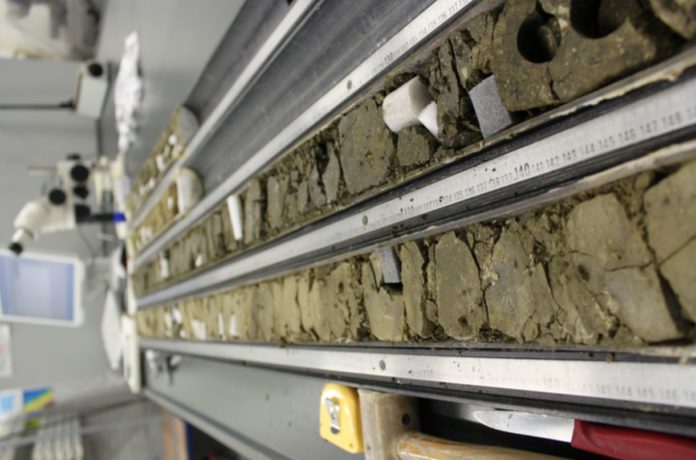Researchers at the University of Southampton have shown that one of the most dramatic and abrupt episodes of global warming in Earth’s history is probably the result of the stretching of the continents.
In collaboration with colleagues from the Universities of Edinburgh, Leeds, Oldenburg, Florence, and the Chinese Academy of Sciences, the researchers investigated the effects of volcanic eruptions and global tectonic forces during a period of extreme environmental change that occurred 56 million years ago.
The “Palaeocene-Eocene Thermal Maximum,” or PETM, which lasted roughly 170,000 years, resulted from a series of events that led the earth to warm by 5-8 C throughout this time. This resulted in the extinction of several deep-sea species and altered the evolution of life on Earth.
The research hypothesizes that the vast stretching of the continental plates in the northern hemisphere greatly decreased pressures in the Earth’s deep interior, much like tugging a toffee bar thins and finally separates. This caused the mantle, a layer of sticky, molten rock just below the planet’s crust, to melt very quickly but only for a short time. The team shows that the resulting volcanic activity happened at the same time as and probably caused a huge release of carbon into the atmosphere that was linked to the PETM warming.
The results of the study will be published in the journal Nature Geoscience.
Due to the high rate and severity of warming, the PETM event is frequently used as a model for understanding modern warming, despite the fact that the underlying mechanism is quite different.
The study’s lead author, Dr. Tom Gernon, an associate professor of earth science at the University of Southampton, notes that the underlying cause is hotly debated despite the PETM’s significance and wider relevance to current global change. “It’s generally agreed that a sudden and massive release of the greenhouse gas, carbon, from the Earth’s interior must have driven this event, yet the scale and pace of warming is very hard to explain by conventional volcanic processes.”
Using records of rocks dug up from the seafloor near the edge of the Atlantic Ocean, the team found key evidence for a sudden, widespread period of volcanic activity in the North Atlantic Ocean that lasted just over 200,000 years, which is eerily similar to the length of the PETM.
Based on these results, the team decided to expand its search to include the rest of the North Atlantic, such as Greenland and the Faroe Islands. Here, they found that lava piles a kilometer thick that started to erupt just before the PETM have strange compositions that point to a big increase in the amount of melting of the uppermost solid part of the Earth’s mantle beneath the continent.
Dr. Gernon says, “This finding is significant, because we know that parts of the continental mantle in this region are enriched in carbonates, a major source of carbon. “This rapid increase in mantle melting,” according to expert, “likely released a very large volume of carbon – certainly more than we had previously expected .”
The period of severe volcanic activity coincided with the period of greatest plate tectonic stretching of the continental landmass connecting Greenland and Europe. Eventually, Greenland and North America broke away from Europe, creating the North Atlantic Ocean. According to scientists, the Earth’s mantle underwent significant melting during this last stage of stretching, which caused a significant carbon dioxide release and subsequent global warming.
The team used a variety of models to figure out how much carbon could have been released by this process. Dr. Thea Hincks, Senior Research Fellow at the University of Southampton and a co-author on the study, says, “Using physically realistic estimates of the key characteristics of these volcanic systems, we show that the amount of carbon needed to drive warming could have been attained by enhanced melting.”
The researchers come to the conclusion that abrupt warming events like the PETM, which are quite likely to have happened during many other periods in Earth history, are greatly influenced by rapid gas release from the solid Earth. Dr. Gernon finds that “such rapid events cause a fundamental reorganization of Earth’s surface environment, altering vast ecosystems.”
Image Credit: Getty
You were reading: Researchers Think They Have Solved A Historic Climate Puzzle
